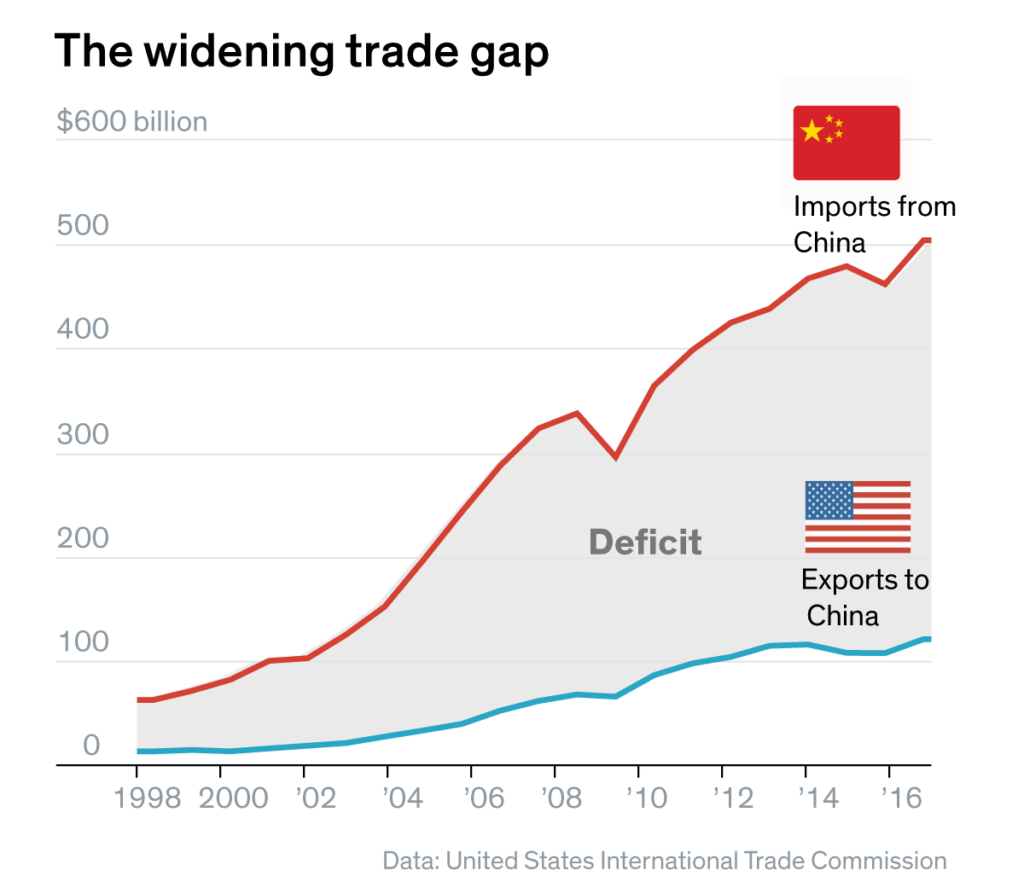The China Factor: Analyzing The Automotive Market Challenges For BMW, Porsche, And Beyond

Table of Contents
Intense Domestic Competition
The Chinese automotive market is no longer dominated solely by international players. The rise of domestic brands presents a formidable challenge to established premium automakers.
Rise of Chinese Automakers
Chinese automakers like BYD, NIO, and Xpeng have experienced explosive growth, leveraging technological advancements and government support to become serious competitors.
- Successful Chinese EV models: BYD's Han and Tang EVs, NIO's ET7 and ES8, and Xpeng's P7 and G9 are examples of sophisticated, technologically advanced vehicles directly challenging established players in the premium segment.
- Competitive Pricing and Features: Domestic brands often offer comparable features and technologies at significantly lower price points, putting pressure on the pricing strategies of premium brands.
- Government Support and Subsidies: Generous government subsidies and favorable policies continue to fuel the growth of domestic electric vehicle (EV) manufacturers, providing a significant advantage in the market.
Price Wars and Market Share Erosion
The intense competition has inevitably led to price wars, forcing premium brands to reduce prices to remain competitive.
- Price Reductions by Premium Brands: BMW, Porsche, and other premium brands have responded to the pressure by offering price reductions and promotions, impacting their profit margins.
- Impact on Brand Image and Profitability: While necessary for market share retention, these price reductions can potentially dilute brand image and long-term profitability if not managed carefully.
Localization Strategies
Adapting to the unique preferences of Chinese consumers is crucial for success. Localization strategies are no longer optional but essential for survival.
- Tailored Features: Premium brands are increasingly tailoring their vehicles with features specifically designed for the Chinese market, such as advanced infotainment systems with localized apps and customized interior designs.
- Partnerships with Local Companies: Collaborations with local suppliers and distributors can improve efficiency, reduce costs, and enhance brand understanding within the local market.
Regulatory Hurdles and Shifting Government Policies
Navigating the Chinese regulatory landscape requires significant expertise and adaptability. The regulatory environment is constantly evolving, presenting ongoing challenges.
Emission Standards and Environmental Regulations
China has implemented stringent emission standards and environmental regulations, driving the rapid adoption of EVs and pushing automakers to invest heavily in sustainable technologies.
- NEV Mandates: The government's New Energy Vehicle (NEV) mandates require automakers to produce a certain percentage of EVs or face penalties.
- Carbon Emission Targets: China has ambitious carbon emission reduction targets, impacting vehicle development and manufacturing processes.
Data Privacy and Cybersecurity Concerns
Growing concerns regarding data privacy and cybersecurity have led to stricter regulations governing the collection and use of data by foreign automakers.
- Data Privacy Regulations: Regulations like the Cybersecurity Law of the People's Republic of China impose significant restrictions on data transfer and storage, impacting connected car features.
- Implications for Connected Car Technologies: Automakers need to ensure compliance with data privacy regulations while maintaining the functionality of advanced connected car technologies.
Navigating the Bureaucracy
The bureaucratic processes in China can be complex and time-consuming, requiring significant effort to obtain necessary licenses and approvals.
- Bureaucratic Hurdles: Obtaining import permits, manufacturing licenses, and various other approvals can be a lengthy and challenging process for foreign automakers.
- Challenges for Foreign Automakers: Understanding the nuances of Chinese regulations and navigating the bureaucratic process effectively is essential for success.
Evolving Consumer Preferences and Technological Disruption
The Chinese automotive market is characterized by dynamic consumer preferences and rapid technological advancements.
The Rise of Electric Vehicles (EVs)
China's EV market is booming, with EVs representing a significant and growing segment of the overall automotive market.
- Market Share of EVs: EVs are rapidly gaining market share in China, driven by consumer demand and government support.
- Technological Advancements: China is a leader in battery technology and charging infrastructure, further accelerating the adoption of EVs.
Connectivity and Autonomous Driving
Connected car features and autonomous driving technologies are becoming increasingly important factors influencing purchasing decisions.
- Advanced Driver-Assistance Systems (ADAS): Features such as lane keeping assist, adaptive cruise control, and automatic emergency braking are highly sought after by Chinese consumers.
- Autonomous Driving Features: Consumers are increasingly interested in vehicles with advanced autonomous driving capabilities.
Brand Perception and Marketing Strategies
Understanding and adapting to the unique preferences of the Chinese consumer is critical for successful marketing campaigns.
- Cultural Sensitivity: Marketing campaigns must be culturally sensitive and resonate with the values and aspirations of Chinese consumers.
- Brand Localization: Adapting brand messaging and visual elements to suit the local market is essential for building brand trust and recognition.
Conclusion: The Ongoing China Factor in the Automotive Industry
The Chinese automotive market presents significant challenges for global automakers, including intense domestic competition from rapidly growing domestic brands, a complex and evolving regulatory environment, and ever-changing consumer preferences. Understanding and effectively managing the "China factor" is crucial for long-term success. This requires strategic adaptation, including localization efforts, substantial investment in electric vehicle technology and related advancements, and a deep understanding of the unique dynamics of the Chinese market. To thrive in this dynamic landscape, continued research and strategic planning are vital. Delve deeper into the nuances of specific aspects of the "China factor" relevant to your business for continued success in the Chinese automotive market.

Featured Posts
-
 New Uk Rules Potential Restrictions On Student Visas From High Asylum Countries
May 10, 2025
New Uk Rules Potential Restrictions On Student Visas From High Asylum Countries
May 10, 2025 -
 Universitaria Transgenero Arrestada Uso De Bano Femenino Genera Controversia
May 10, 2025
Universitaria Transgenero Arrestada Uso De Bano Femenino Genera Controversia
May 10, 2025 -
 Dakota Johnsons Materialist Premiere Family In Attendance
May 10, 2025
Dakota Johnsons Materialist Premiere Family In Attendance
May 10, 2025 -
 174 Billion Loss Trumps Trade War Impacts Top Global Billionaires
May 10, 2025
174 Billion Loss Trumps Trade War Impacts Top Global Billionaires
May 10, 2025 -
 Unprovoked Hate Crime Family Left In Ruins After Brutal Killing
May 10, 2025
Unprovoked Hate Crime Family Left In Ruins After Brutal Killing
May 10, 2025
